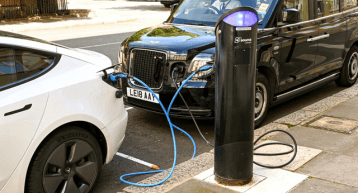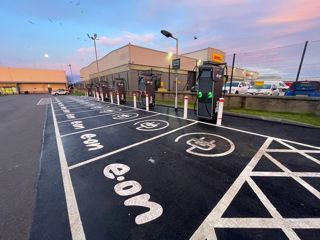The roll out of charge points funded by the local electric vehicle infrastructure (LEVI) programme has faced delays due to councils taking longer to develop their plans than expected.
The National Audit Office (NAO), which holds Government spending to account, has published a report looking at the progress so far with the UK’s EV infrastructure.
The report said the speed with which Department for Transport (DfT) intended the programme to move "placed pressure on local authorities, who had to build their capability alongside developing projects".
It said that the £450 million of LEVI funding will see 100,000 charge points installed by local authorities, but the DfT has said “an established procurement route is proving no longer feasible”.
Only 10 projects approved to deliver before March 2025
These issues have led to delays; as of October 2024, while virtually all local authorities had developed projects and were in the process of refining these, only 10 projects had been approved for delivery against a March 2025 deadline.
Delays have meant that many local authorities will approach the market at a similar time, with concerns that this may lead to failed procurements.
Local authorities who piloted the programme are reporting delays, with half of these projects delayed by a year or more.
Local authorities report issues including a lack of resource, practical issues with sites, and challenges in securing planning permissions given planning capacity within local authorities.
However, DfT intends to issue all remaining funding by March 2025, meaning, without further funding, local authorities will have to deliver their projects without further central support.
The Government allocated £200 million of funding to support charging infrastructure at the 2024 Budget, including local charging, but DfT has not yet finalised how it will spend this money
DfT launched the three-year LEVI programme in 2022 and, by October 2024, had issued £242m of funding for local authorities to develop projects, including £40m of capability funding.
It also aimed to address regional disparities and better allocate money where it is most needed, with additional support to fund local authorities to employ staff to plan for public charge point infrastructure.
DfT has also established a central support body to provide technical advice and support.
The NAO report also shows that the Government is on track to install 300,000 public charge points before 2030, but a regional divide still remains.
























Login to comment
Comments
No comments have been made yet.